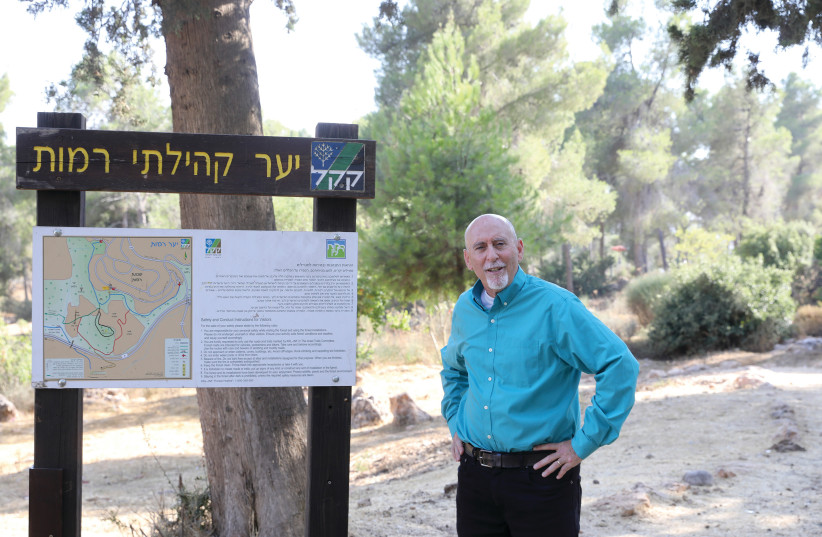In a July editorial, we called the government’s decision to reduce greenhouse gas emissions by 85% by 2050, as part of an international push to limit global warming – a historic awakening for Israel and a reminder of how far behind we are compared to the rest of the developed world.
The government approved the 2050 target and set an interim target of 2030 to reduce emissions by 27% from levels in 2015, the year when global climate accords were signed in Paris.
Ahead of next week’s UN Climate Change Conference in Glasgow, the COP26, the government announced an ambitious plan of 100 action items aimed at coping with the climate crisis, four of which were passed by the cabinet on Sunday: a resolution on an energy-streamlining program to reduce greenhouse gas emissions, with NIS 725 million to support industry, commerce and local government; a resolution on clean, low-carbon transportation; a resolution to accelerate building infrastructure with a focus on removing obstacles to renewable energy; and a resolution to encourage technological innovation to fight climate change.
The climate-tech plan, led by Prime Minister Naftali Bennett, Environmental Protection Minister Tamar Zandberg and Energy Minister Karine Elharrar, is meant to boost the development of technologies to mitigate greenhouse gas emissions and prepare for and adapt to climate change. The technologies will be in the areas of climate, energy, food, agriculture – including desert agriculture, water and more, as reported by The Jerusalem Post’s Lahav Harkov.
One of Israel’s leading environmentalists, coalition MK Alon Tal, touted the “significant moves,” and said there has been “tremendous progress in the last four months, relative to the commitments of previous governments.”

But is it enough?
A State Comptroller’s Report, titled “The actions of the Israeli government and its preparations for the climate crisis” released Tuesday, summarized that “Israel is not prepared for the climate crisis and there has not yet been a change in Israel’s policy perception to reflect the issue. Eighty-four percent of public bodies have no plan at all to deal with the climate crisis.”
That has wide-ranging implications. The World Meteorological Organization released a report Monday that showed greenhouse gas concentrations hit a record last year and the world is “way off track” on climate goals. The report showed that carbon dioxide levels rose more than the average rate over the last decade despite a temporary dip in emissions during COVID-19 lockdowns.
Despite its apparent “wokeness” to the global environmental crisis, Israel is still so far behind much of the Western world. Our commitment to achieve 27% renewable energy by the year 2030 pales in comparison to the EU, which recently committed itself to emit 55% less greenhouse gases in 2030 and to the program set out by US President Joe Biden which in only three more years – 2035 – is committing to 100% renewable energy.
Maybe it’s because of the upcoming Glasgow conference, but it seems as if Israel is waking up to the fact that more needs to be done. President Isaac Herzog announced this month that he would convene a new Israeli Climate Forum several times a year, bringing together government bodies, the Knesset, academics, local authorities and industrial representatives.
Bennett is going to lead Israel’s high-level delegation to COP26, and at the cabinet meeting, said, “The climate crisis is one of the central topics on the global agenda. It touches everyone’s lives, and those of our children and grandchildren. We must take care of it here in Israel, and it is important to us.”
However, only a month ago, addressing the UN General Assembly, Bennett didn’t mention the climate crisis even once. If he’s on board now, it’s better late than never.
In July, we wrote that the cabinet’s environmental decisions were a good first step that got Israel off the bench, to use a sports metaphor. With this week’s advancements ahead of COP26, and the apparent seriousness that the government’s taking the conference by sending its prime minister, Israel seems to be clearly in the game.
It remains to be seen whether Bennett’s platitudes and the government’s well-intentioned plans will translate into concrete action and results. For the sake of our children and grandchildren, let’s hope they do.
